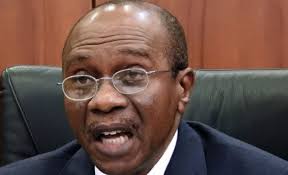The Central Bank of Nigeria (CBN) has reported that its total assets appreciated to N29.6 trillion in 2017 from N21.9 trillion reported in 2016, representing about 35 percent growth in the 12-month period.
A major contributor to the apex bank’s impressive performance as contained in its audited financial statements for the year ended December 31, 2017, was the positive trajectory of its external reserves and loans and receivables.
Specifically, the external reserves grew by 74.6 per cent to N14.58 trillion in 2017, up from the N8.35 trillion reported in the preceding year, while loans and receivables grew by 28.3 per cent to N10.3 trillion, up from N8.02 trillion reported in 2016.
In the 2017 report scorecard, the CBN reported 11 per cent increase in total liabilities to N22.5 trillion up from N21.2 trillion in 2016, driven by 11.03 per cent increase in deposits to N12.5 trillion in 2017 as against N11.23 trillion reported in 2016.
The audited financial report showed further that the net income for the group depreciated by 13.7 per cent from N124.47 billion recorded in the same period of 2016 to N107.4 billion.
The apex bank Governor, Mr. Godwin Emefiele, said on the report: “Many would agree that the year 2017 was an enthralling and exerting one for the Central Bank of Nigeria (CBN) and for the Nigerian economy on the whole.
“As I present the 2017 Annual Report and Statement of Accounts of the CBN, I am delighted to note that the economic uncertainties and foreign exchange challenges endured in the preceding year began to abate during 2017. The onset of economic turnaround witnessed during the year was accompanied by brightening short-term outlook even as global recovery remained less-than-expected.
“In the financial markets, foreign exchange pressures which characterised the preceding year abated considerably during 2017 as the naira-dollar exchange rate appreciated, converged and stabilised across the various windows and segments of the market.
“External reserves also recovered remarkably during the year under review with a 45.8 per cent annual accretion to $39.35 billion as at end-December 2017”, Emefiele added.






